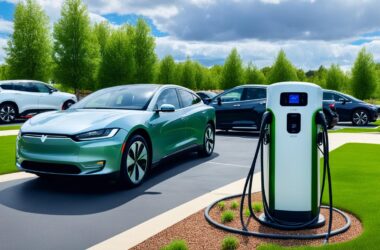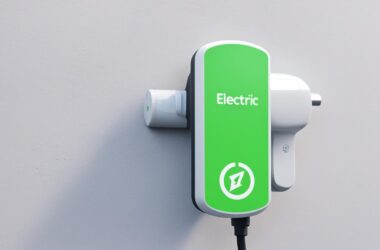Introduction
As electric vehicles (EVs) surge in popularity, concerns regarding fast charging’s effect on battery longevity linger. This article aims to dissect the realities of fast charging and its implications on battery health, providing actionable insights and dispelling common misconceptions.
Exploring Fast Charging Dynamics
Fast charging, also termed Level 3 or DC charging, offers rapid EV recharging within minutes, a stark contrast to traditional AC charging that takes hours. However, the substantial heat generated during fast charging necessitates a closer examination of its influence on battery health.
Assessing Battery Health Impact
Studies suggest that frequent fast charging minimally impacts battery degradation, with research indicating a mere 0.1 percent increase compared to AC charging. While this variance is slight, it underscores the importance of nuanced battery management practices.
Insights from Real-World Studies
Findings from organizations like Geotab and the Idaho National Laboratory shed light on fast charging’s effects under real-world conditions. Despite slightly accelerated degradation, fast charging’s overall impact remains modest, especially within typical driving contexts.
Navigating Practical Considerations
Despite the allure of fast charging, many drivers find traditional AC charging sufficient for daily use. Factors like installation costs, accessibility, and charging rates render fast charging a less frequent choice for most EV owners.
Embracing Battery Technology Advancements
Modern EV batteries integrate advanced cooling systems to withstand fast charging, ensuring optimal performance even in extreme climates. These innovations mitigate risks of overheating and overcharging, enhancing overall battery resilience.
Optimizing Battery Health
To preserve battery longevity, adhering to best practices is crucial. Avoiding fast charging in extreme temperatures and maintaining a charge level between 20 and 80 percent are recommended strategies. While batteries inevitably degrade over time, fast charging’s impact remains marginal, primarily manifesting as slight capacity loss.
Concluding Insights
While concerns persist, evidence suggests that fast charging’s effects on battery health are minimal. By adopting informed practices and leveraging technological advancements, EV owners can embrace fast charging confidently without compromising long-term battery performance.
Driving Forward Responsibly
As EV technology evolves, informed decision-making and responsible charging practices are paramount. By dispelling myths and embracing evidence-based approaches, we can unlock the full potential of electric mobility while safeguarding battery health for the future.
Summary
In this article, we explored the impact of fast charging on electric vehicle (EV) battery health, debunking misconceptions and offering practical insights. Fast charging, while convenient, raises concerns due to the heat it generates. However, studies indicate minimal battery degradation compared to traditional AC charging. Real-world data supports this, showing only slight degradation under typical driving conditions.
Despite the allure of fast charging, most drivers find traditional AC charging sufficient for daily needs, considering factors like cost and accessibility. Modern EV batteries incorporate advanced cooling systems to withstand fast charging, ensuring optimal performance in various conditions. To preserve battery longevity, adhering to best practices like avoiding extreme temperatures and maintaining optimal charge levels is essential.
Overall, while concerns persist, evidence suggests that fast charging’s impact on battery health is manageable. Informed decision-making and responsible charging practices are crucial as EV technology evolves, ensuring sustainable battery health for the future of electric mobility.








